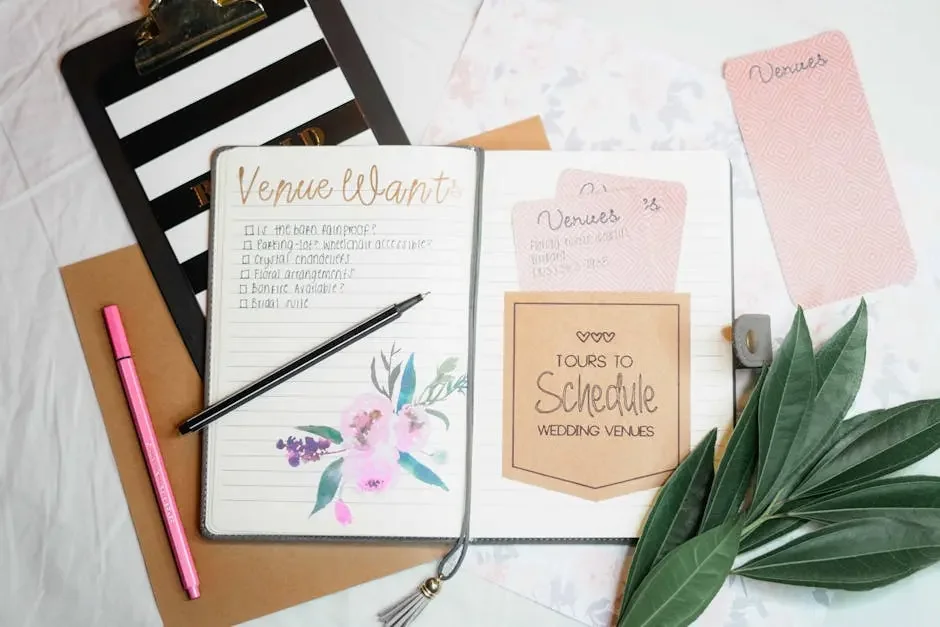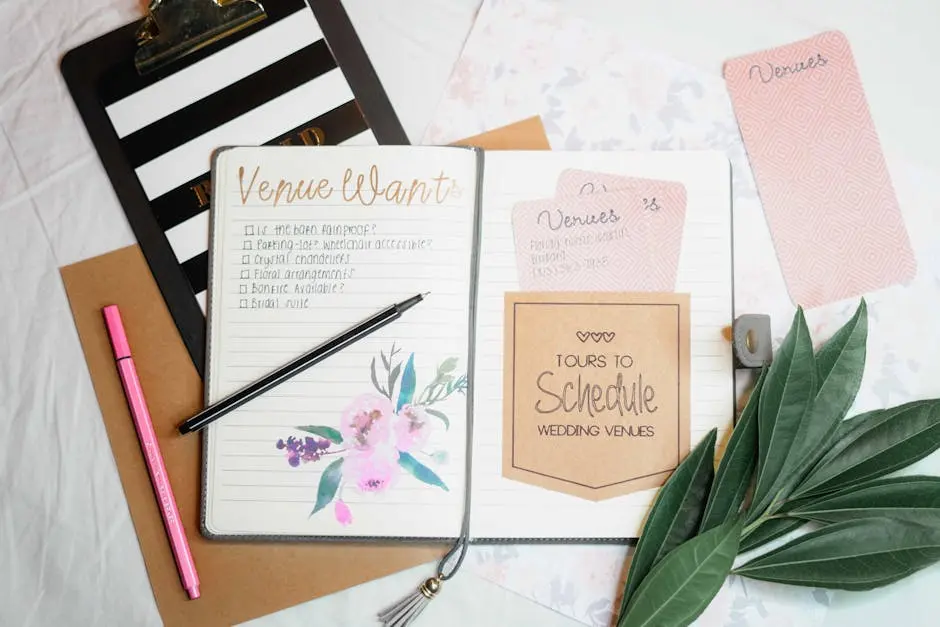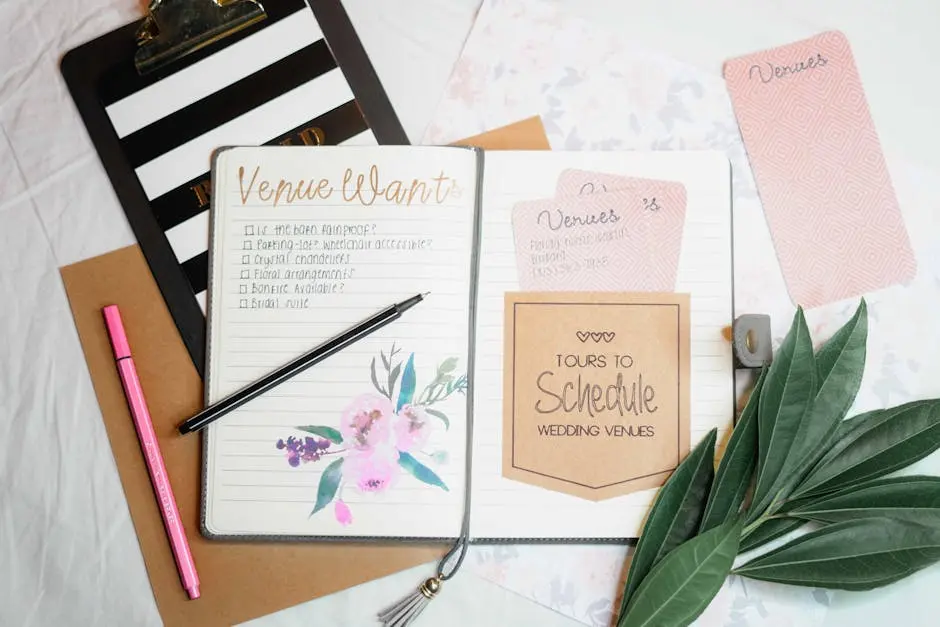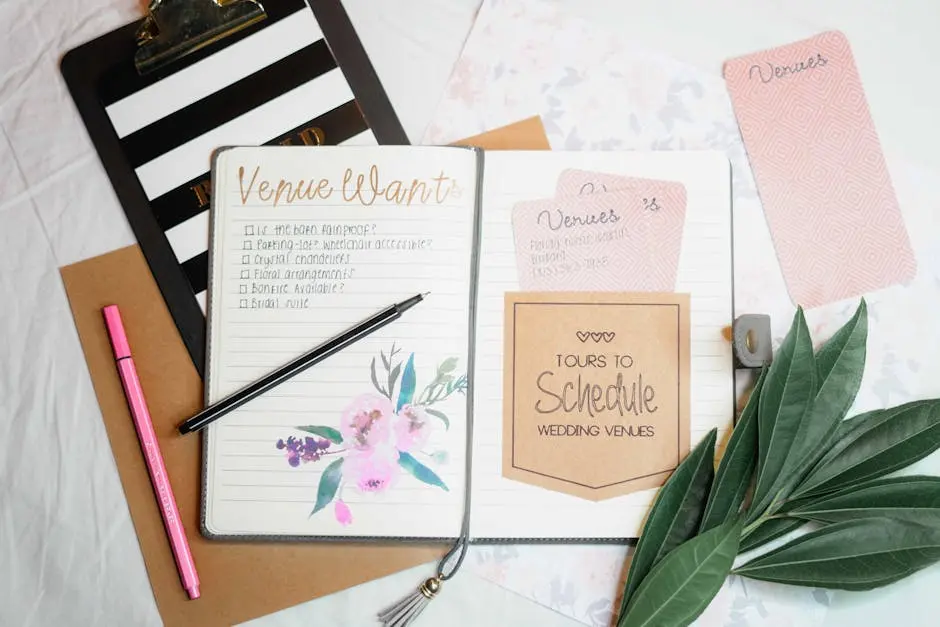Planning a destination wedding can be a thrilling adventure, but without the right guidance, it can also turn into a daunting task. In this blog post, we're going to unveil the top secrets from experienced wedding planners that will help you create the dream wedding you've always envisioned. From selecting the perfect location to managing the finer details, we've got you covered!
Choosing the Perfect Location
The first step to a breathtaking destination wedding is selecting the right location. Consider weather, accessibility, and the vibe you want your celebration to embody.
Additionally, think about the logistical aspects of your chosen venue. Is there ample accommodation for your guests nearby? Will there be adequate transportation options? Each of these factors will play a significant role in the overall enjoyment of your wedding, not just for you as a couple but for your family and friends as well.
Don’t forget to explore lesser-known venues! Hidden gems often offer stunning backdrops and memorable experiences. Research local sites that might not be on the radar but could provide just the unique touch you're aiming for. A stunning cliffside villa or a quaint beachside cottage can offer an intimate setting that mainstream resorts might not provide.
Setting a Realistic Budget
Budgeting for a destination wedding can be tricky. Understand the costs involved and set a budget that allows you to achieve your dreams without breaking the bank.
It's also vital to allocate funds wisely. Each wedding expense should be prioritized, keeping in mind what aspects of your day are non-negotiable. This means properly investing in areas that matter most—such as breathtaking photography or delightful catering—while being open to lower-cost options for less essential elements, like decorations.
Moreover, consider hidden fees. These can sneak up on you, especially when planning from afar. Things like service fees for wedding planners, taxes, and currency conversion rates need to be calculated into your overall budget to avoid any unpleasant surprises. A thorough understanding of potential expenses will allow you to create a detailed financial plan that truly reflects your vision.
Expert Tips for Vendor Selection
Finding reliable vendors is crucial. Look for local professionals who have experience with destination weddings and check their testimonials.
Building a trusting relationship with your vendors can facilitate smoother communication and collaboration. Recommend setting up video calls to discuss details, as this personal touch can often yield a better understanding of your shared expectations and foreseen challenges.
Also, don't hesitate to ask the vendors for their opinions on local customs or trends. Their intimate knowledge of the area might inspire ideas that can enhance your wedding, such as incorporating local cuisine into your catering or suggesting unique entertainment that resonates with the destination’s culture.
Lastly, look for vendors who offer packages rather than a la carte services. This can often prove to be more cost-effective and less stressful than juggling multiple contracts, while also ensuring a cohesive look and feel to your event.
Creating a Unique Wedding Vision
Infuse your personality into your wedding by developing a unique theme that reflects who you are as a couple. This will make your celebration memorable and one-of-a-kind.
Consider ideas that resonate with your love story. For instance, if you both adore vintage vibes, think about incorporating retro decor elements, a classic car as your getaway vehicle, or even a romantic outdoor garden setting. These details tantalize the senses and create an immersive experience for you and your guests.
Another creative way to personalize your wedding theme is by blending traditions from both families. This can create a rich tapestry of meaning that celebrates your individual backgrounds while also fostering unity in your new life together. Unique traditions can be infused into the ceremony or reception to create a reflective and heartfelt atmosphere.
Plan for Guest Experience
Think about your guests and their experience. Provide them with information on accommodations, activities, and transportation to ensure they have a wonderful time.
Sending welcome bags can be a lovely touch! Include a local map, favorite snacks, and personalized notes to give your guests feel appreciated and informed. This extra effort can help ease any travel anxiety and enhance their excitement about the upcoming celebration.
Furthermore, consider planning group activities leading up to the big day. These can be fun outings or excursions that allow guests to mingle, creating a family atmosphere long before the wedding begins. Whether it’s a group hike, a beach picnic, or a cooking class, these bonding moments can deepen relationships among friends and family and heighten the overall enjoyment of your wedding weekend.
Navigating Legal Requirements
Each destination has its own legal requirements for marriage. Research what documents you'll need and ensure everything is in order well before your big day.
Getting familiar with local regulations can save you from last-minute headaches. Each country often has varying requirements—from special licenses to identification—and understanding these well in advance means you can focus on the more enjoyable aspects of planning.
You might also need to consider the logistics of securing these documents. For instance, if you're required to be residents for a certain period before the wedding, include that time in your planning. It can also facilitate a more meaningful experience, allowing you to explore your chosen destination more fully leading up to your special day.
Timing is Everything
Choosing the right time of year for your wedding can greatly impact your experience. Consider the climate, local events, and peak tourist seasons when planning.
For instance, if you're dreaming of a tropical beach wedding, you might want to avoid hurricane season to ensure the day goes off without a hitch. Likewise, planning around local festivals can either enhance your guest experience or force you into crowded venues, so be mindful of these variables.
Moreover, weekday weddings can offer not only a calmer atmosphere but often reduced rates from venues and vendors, making for a savvy choice if your heart isn't set on a Saturday.
Embracing Flexibility
Destination weddings require adaptability. Be prepared for unexpected changes and embrace them as part of your experience.
Travel delays, weather changes, or vendor hiccups can happen, but having an adaptable mindset will help you navigate these challenges with grace. Remember, what ultimately matters is the love and celebration you share with your partner and loved ones.
Inculcating a spirit of flexibility means finding joy in the unexpected. Maybe a sudden rain shower leads to an adorable indoor ceremony filled with warmth and laughter. This spirit of adaptability not only helps you cope with challenges but can transform what seems to be a setback into a beautiful memory.
Final Thoughts on Planning Your Dream Wedding
With these top wedding planner secrets at your disposal, you're now equipped to take on the exciting journey of planning your destination wedding. Embrace the process, stay organized, and don’t hesitate to seek help from professionals when needed. Your dream wedding is within reach!







































